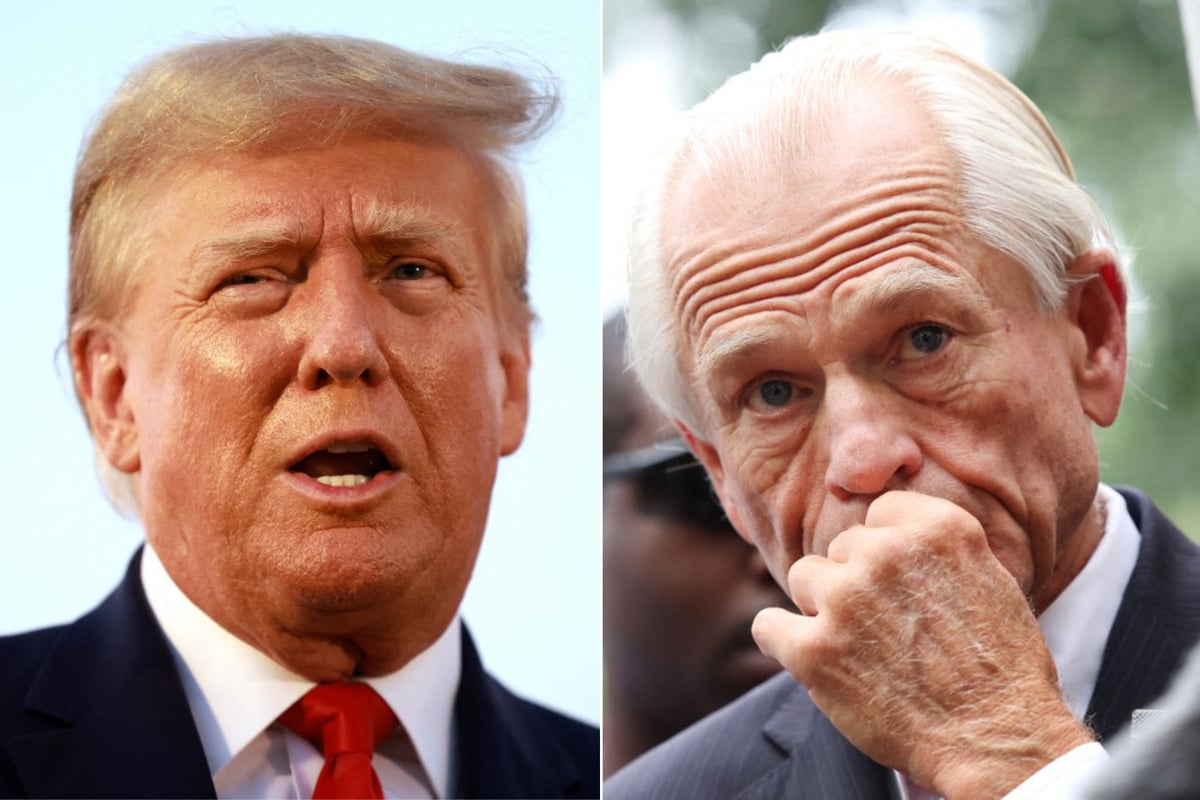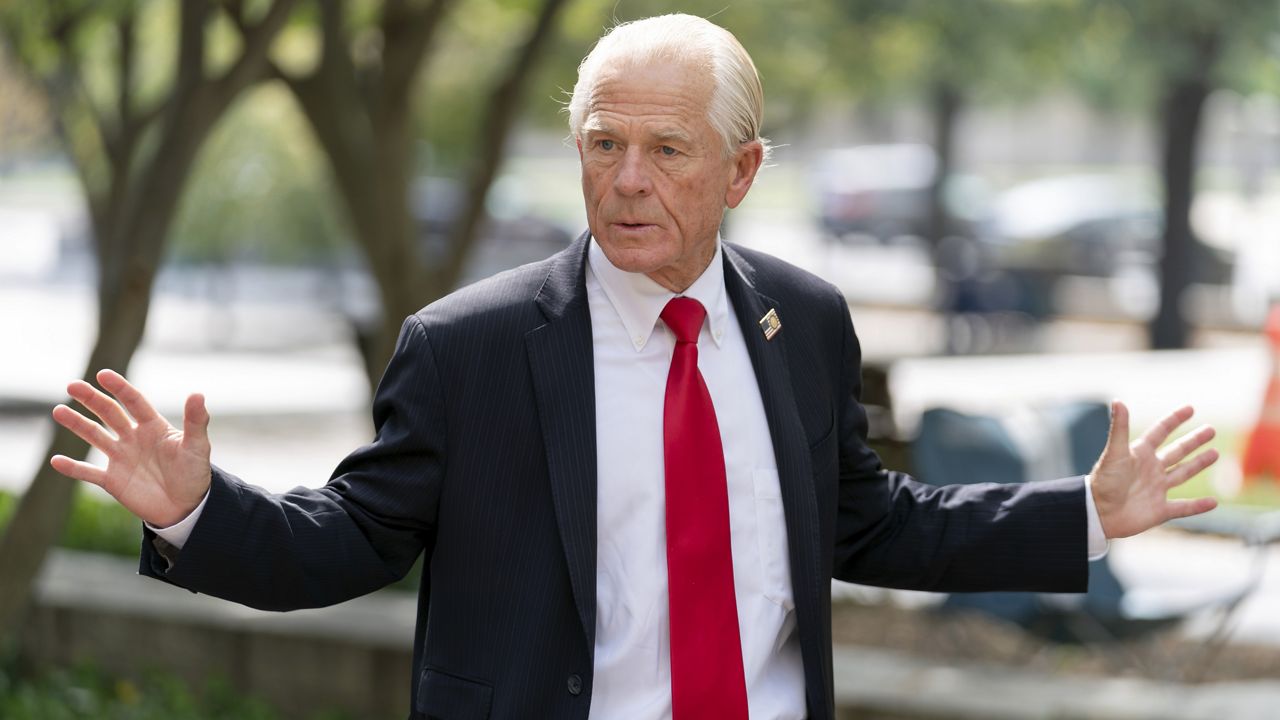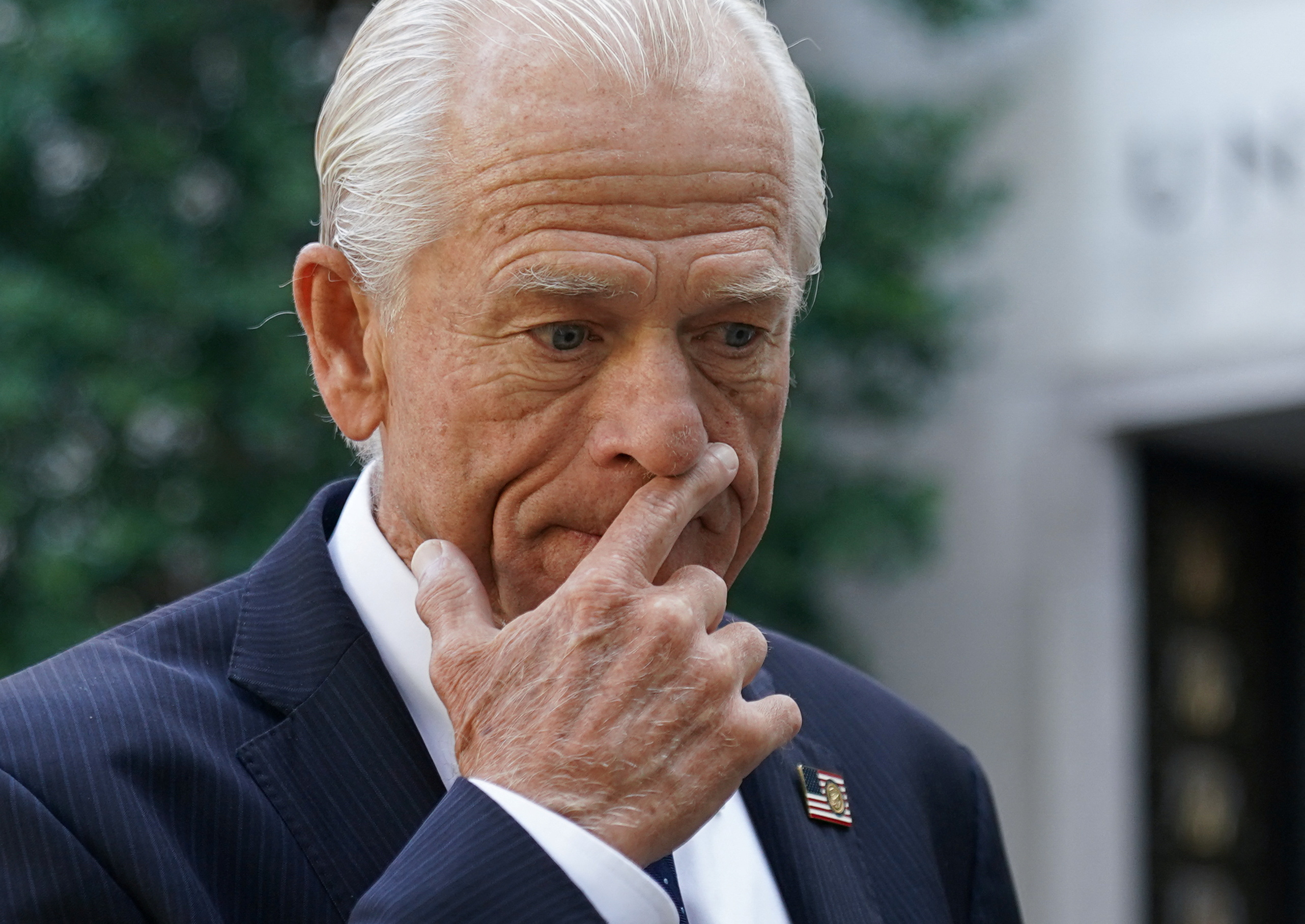Former Trump Adviser Peter Navarro Faces Justice: 4-Month Prison Sentence for Defying Congressional Subpoena
Table of Contents
- Trump aide Peter Navarro REFUSES to appear before House COVID ...
- Who Is Peter Navarro?
- US prosecutors urge jurors to convict Trump ex-adviser Navarro for ...
- Ex-Trump trade advisor Peter Navarro found guilty of contempt of Congress
- Supreme Court denies Navarro bid to delay start of prison sentence ...
- Peter Navarro sentenced to four months in prison
- Peter Navarro: A 'Bricklayer' Of Trump's Protectionist Wall | WBUR News
- Emma Navarro, chi è l'ereditiera miliardaria che sfida Jasmine Paolini ...
- Ex-Trump adviser Peter Navarro ordered to report to prison on March 19 ...
- Protesters Derail Peter Navarro's Press Conference

In a significant development, Peter Navarro, a former adviser to ex-US President Donald Trump, has been sentenced to 4 months in prison for defying a congressional subpoena. This move marks a notable moment in the ongoing saga of legal repercussions faced by individuals closely associated with the Trump administration. The sentencing comes after Navarro refused to comply with a subpoena from the House select committee investigating the January 6, 2021, attack on the US Capitol.


Background of the Case

Peter Navarro, who served as the Director of the Office of Trade and Manufacturing Policy under President Trump, was subpoenaed by the House committee to provide documents and testimony related to the events surrounding the January 6 insurrection. However, Navarro, citing executive privilege, refused to comply with the subpoena, leading to a contempt of Congress charge. Executive privilege is a doctrine that allows the president and other high-ranking government officials to keep certain communications confidential, but its application in this case was disputed.

:max_bytes(150000):strip_icc()/peter-navarro_final-3a4319f9716c4ef6991f138c059b3c55.png)
Legal Proceedings and Sentencing

Following his refusal to comply with the subpoena, Navarro was held in contempt of Congress and subsequently indicted. The legal proceedings culminated in a guilty verdict, after which Navarro was sentenced to 4 months in prison. This sentence reflects the seriousness with which the court views defiance of congressional subpoenas, emphasizing the importance of cooperation with legal investigations.


Implications and Reactions

The sentencing of Peter Navarro has significant implications for the ongoing investigations into the January 6 attack and the broader context of accountability within the Trump administration. It underscores the legal system's commitment to ensuring that individuals, regardless of their position or influence, comply with legal requests for information. Reactions to the sentencing have been varied, with some viewing it as a necessary step towards accountability and others criticizing it as politically motivated.
The case of Peter Navarro serves as a reminder of the importance of compliance with legal processes and the consequences of defiance. As the legal landscape continues to evolve, particularly concerning investigations into the Trump administration, this sentencing sets a precedent for future cases. It highlights the delicate balance between executive privilege and the need for transparency and accountability in government actions. The sentencing of a former high-ranking official to prison for contempt of Congress is a rare and significant event, emphasizing the gravity with which such offenses are viewed by the legal system.
For those interested in political developments and the rule of law, this case provides valuable insights into the workings of the US legal system and its approach to ensuring compliance with congressional investigations. As more details emerge and the situation unfolds, it will be crucial to follow reputable news sources for the most accurate and up-to-date information.
In conclusion, the sentencing of Peter Navarro to 4 months in prison for defying a congressional subpoena marks a critical moment in the ongoing story of legal accountability within the Trump administration. It reflects the system's commitment to the rule of law and the principle that no individual is above legal obligations, setting an important precedent for future cases involving defiance of congressional subpoenas.